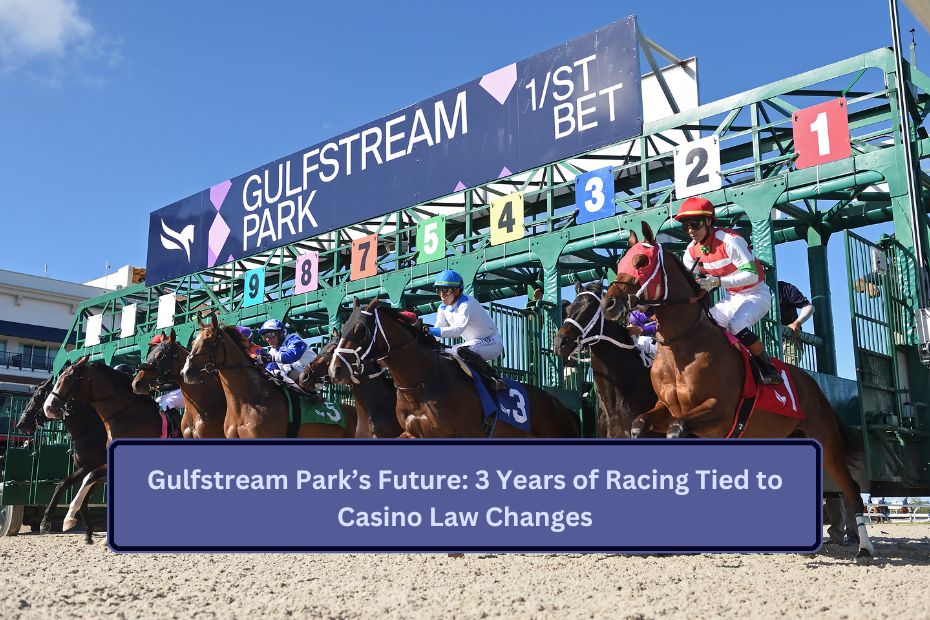The future of Gulfstream Park, a famous horse racing track in Florida, hangs in the balance. The Stronach Group, the track’s owners, have proposed a deal to ensure at least three more years of racing. However, this depends on whether lawmakers approve a change in state laws to allow separate licenses for horse racing and casino operations. Without this change, Gulfstream Park could face closure sooner than expected.
Stronach Group’s Proposal
The Stronach Group has offered to keep Gulfstream Park open for three years if they get permission to “decouple” their horse racing and casino licenses. This would let them focus on expanding their casino operations and potentially build a hotel without the legal requirement to hold at least 40 racing days per year.
At a private meeting with Florida horsemen at Gulfstream Park’s Sport of Kings hall, Stronach advisors shared their concerns about the track’s future.
“If we don’t get decoupled, we can’t guarantee that we can continue racing,” said Stronach executive Stephen Screnci. He emphasized that the proposal wasn’t a threat but a realistic outlook on their business challenges.
Horsemen’s Concerns and Reactions
Many local horse trainers and owners, however, saw the proposal differently. One trainer described the message as a veiled threat. “It felt like they were saying, ‘Take this deal, or we might close anytime,’” said the trainer, who spoke anonymously.
The atmosphere at the meeting was tense. According to those present, most attendees were against the idea of decoupling. Saffie Joseph Jr., a prominent Gulfstream trainer, reportedly voiced the concerns of many but was unavailable for comment afterward.
Legal Context: What is Decoupling?
Currently, Florida law requires racetracks like Gulfstream Park to hold live horse races to keep their slot-machine license. This means Gulfstream must run at least 40 race days per year. However, Florida House Bill 105, introduced recently, could remove this requirement. If passed, racetracks could keep their casino licenses without holding live races.
Stronach’s Vision for the Future
According to Stronach’s plan, decoupling would allow them to expand their casino and build a new hotel, bringing in more revenue. This, in turn, could support racing costs. “We believe this plan could allow racing to continue here for much longer,” Screnci explained.
He also acknowledged the growing value of Gulfstream Park’s land. Sitting on 245 acres in a prime urban area, the property has significant real estate potential. Screnci admitted that selling the land is an option if racing becomes financially unsustainable.
What’s Next?
The Florida Thoroughbred Horsemen’s Association (FTHA) plans to continue discussions about the future of Gulfstream Park. Another meeting with horsemen is scheduled at Palm Meadows Training Center. As these conversations unfold, the fate of Gulfstream Park and its racing tradition remains uncertain.
Gulfstream Park’s future hinges on a delicate balance between preserving racing traditions and adapting to modern business demands. The Stronach Group’s push for decoupling offers a potential lifeline but raises questions about long-term commitment to racing. For now, horsemen and fans alike wait for Florida lawmakers to decide on House Bill 105, which could shape the next chapter for Gulfstream Park.
Visit Home

